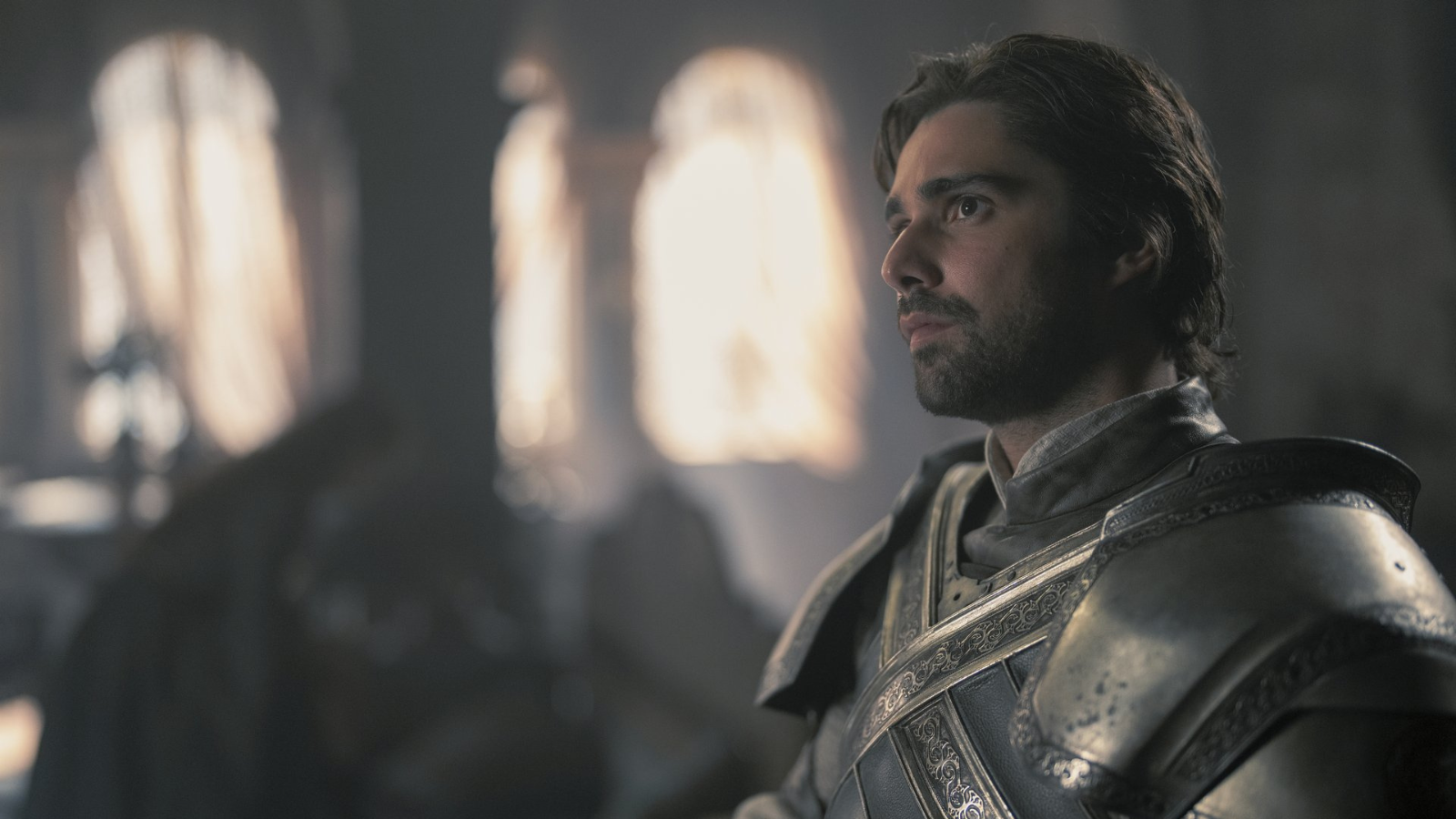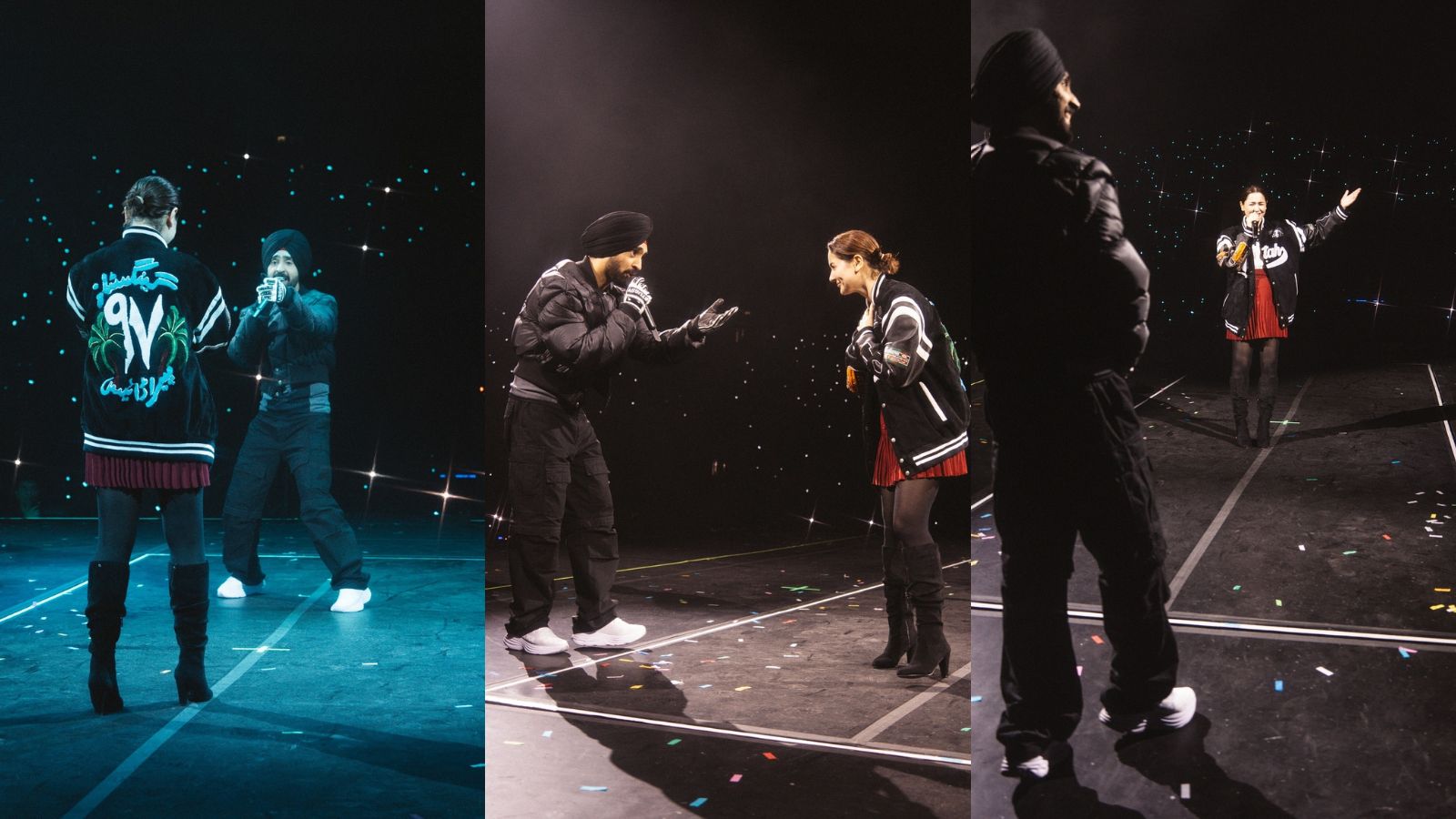[ad_1]
‘A son for a son’.
The thirst for vengeance gripped the core characters of ‘House of the Dragon’ in the season opening of the second installment of the acclaimed HBO show. Episode Two set out on a daring mission to portray the gripping arc of the aftermath of the killing of Jaehaerys, heir to the Iron Throne. Written by Ryan Condal and directed by Claire Kilner, the 72-minute episode is the series’ longest to date.
The episode opens with an eerie stillness that foreshadows the impending turmoil. As the Red Keep descends into chaos following the assassination, servants and other small folks are rounded up, their panic vividly portrayed through unsettling cinematography. Ramin Djawadi’s haunting score, featuring a solo violin, captures the mounting tension.
Olivia Cooke’s portrayal of Alicent Hightower is a standout, capturing the complexity of her character with remarkable depth. Alicent’s journey through guilt and grief, as she grapples with the consequences of her son’s actions, is compelling. Her depiction of a mother tormented by the fear of divine retribution befalling her and her daughter, Helaena, is particularly poignant.
The raw emotion in her scenes, especially when she faces the possibility that her family is being punished, adds a profound layer of depth to her character. Cooke’s performance brings a powerful authenticity to Alicent’s struggle, making her storyline deeply affecting.
The family divide widens.#HOTD is streaming now on @StreamonMax. pic.twitter.com/8nCmvsm8ZV
— House of the Dragon (@HouseofDragon) June 24, 2024
Phia Saban and Tom Glynn-Carney deliver noteworthy performances as Helaena and Aegon, respectively. Their reactions to Jaehaerys’ death are markedly different, capturing their distinct personalities. Aegon’s explosive anger and public outbursts contrast sharply with Helaena’s quiet, secluded mourning. This divergence in their grieving processes further highlight the personal and familial impacts of the war— providing a rich emotional texture to the episode.
A pivotal moment in the episode is the confrontation between Rhaenyra (Emma D’Arcy) and Daemon (Matt Smith). The tension between them reaches a boiling point as Rhaenyra is strategically blamed for Jaehaerys’ death. Their argument is a showcase of strong character dynamics, with Daemon’s obstinate nature clashing with Rhaenyra’s resolute determination.
With this, Aemond’s admission during a brief brothel scene reveals his muted regret over Lucerys’ death. His companion’s remark about the suffering of the small folk when princes lose their temper serves as a poignant reminder of the broader impact of war. This theme is further explored through the subplot involving the Cargyll twins, Arryk and Erryk, whose tragic confrontation displays the senseless brutality of the civil war.
The climax of the episode features a heart-wrenching battle between the Cargyll twins, portrayed by Luke and Elliot Tittensor. Ser Criston Cole’s (Fabien Frankel) orders for Arryk to infiltrate Dragonstone and kill Rhaenyra set the stage for this intense and emotionally charged fight. The choreography and raw emotion in this scene highlight the devastating personal toll of the war, making it one of the episode’s most memorable moments.
In a key moment of the episode, King Aegon II replaces Ser Otto Hightower with Ser Criston Cole as Hand of the King, signaling a major shift in his war strategy against Rhaenyra and Team Black. Otto, who favored a more measured and diplomatic approach to garner support from the small folk and other houses, is dismissed due to his reluctance to launch immediate aggressive retaliations.
In stark contrast, Criston Cole’s readiness to take decisive action, such as ordering Ser Arryk Cargyll to impersonate his twin and assassinate Rhaenyra, appeals to Aegon’s desire for swift vengeance. This impulsive decision, driven by grief and anger over the death of his heir, reflects Aegon’s preference for immediate action over long-term strategy.
Otto’s departure from King’s Landing to Oldtown leaves a void in Aegon’s council. Criston, lacking Otto’s political foresight and careful consideration, is ill-prepared to fill this gap. Unlike Otto, who approached his role with a blend of governance and diplomacy, Criston focuses primarily on military strength and rapid responses, potentially compromising the kingdom’s stability.
[ad_2]




